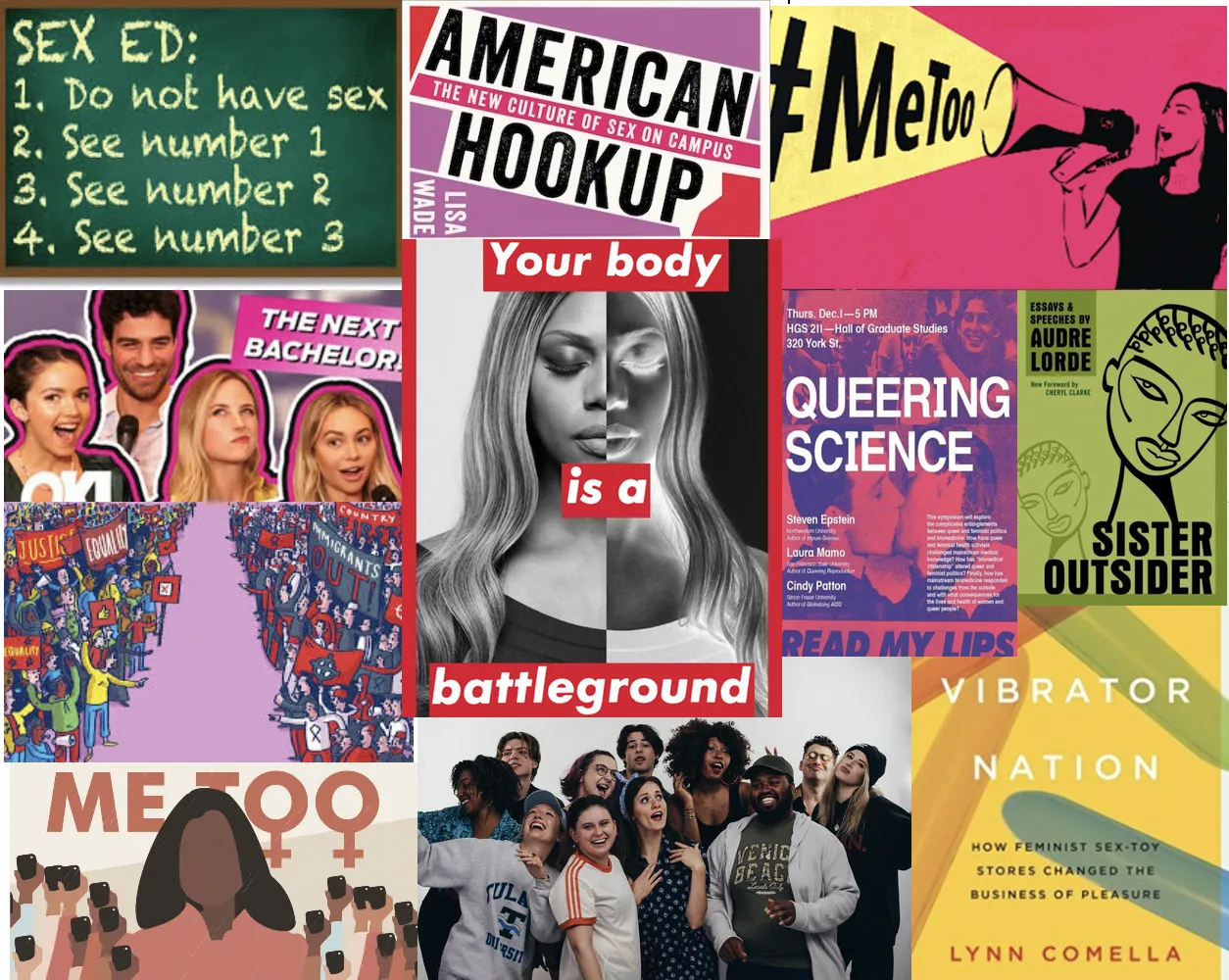
“We’re planting seeds,” explained Krystal Cleary, a professor in the Department of Communication. Together with history professor Red V Tremmel, Cleary leads the course “Sex, Power, Culture” in the Gender and Sexuality Studies Program (GESS). The goal of the class is to equip students with conceptual and practical tools to navigate issues of sex and sexuality at Tulane and beyond.
In summer 2018, Cleary and colleagues in GESS received funding through a Carol Lavin Bernick Faculty Grant to teach “Sex, Power, Culture” as a pilot course. Today, the course is offered to first year students and spring scholars during the fall semester and fulfills a requirement for the university’s race and inclusion core curriculum. “We have over 50 years of research on gender and sexuality,” said Tremmel, “and we’ve developed really precise conceptual tools to understand things in more depth, whether that is in biology or history.” While academic literature across media and sexuality studies, public health, history, and sociology, among other disciplines, plays a strong role, Cleary and Tremmel often pair texts with blogs, music videos, and podcasts so students are engaged in multiple levels of discourse.
“We’re always trying to maintain a two-tiered analysis where we’re understanding the macro level of systems of power, inequality, and privilege, and also how those are connected to our students’ lived, embodied experiences,” said Cleary. Madi Bolin, a first-year student enrolled in the course, expressed how the class discussions surprised her when she realized “that I am not alone in my skepticism of gender and sexuality norms.” Applying material and dialogs from class to her own life, she shared, “I have always been interested in questioning social norms; I started questioning my sexuality in 8th grade, but I knew my community was not very accepting. So, for a very long time, I dealt with internalized homophobia, external homophobia, and intensely stuck to the hegemonic sexual scripts that I had been taught were ‘normal.’ Last year I finally came out as a lesbian because I could not hide it anymore, and when I got to Tulane and took this class, I finally understood why I did what I did and what it meant.”
As Tremmel explains, their goal is to create an environment where students are encouraged to practice inquiry. “We pose questions each week such as what are the dynamics of power in any particular situation? How do they affect sexual relations, identities, and policies? And do the ways of creating sexual discourse across time and cultures affect power?” Throughout the semester, Cleary and Tremmel encourage students to consider the relationships among sex and sexuality with other identities and systems of inequality, such as race, class, gender, and ability.
“Our main thinking in creating the course was that students rarely have the opportunity to develop a train of thought for 16 weeks. This is really different than having a two-hour sex education class in high school. What happens to 100 students who are given conceptual frameworks to think about sex? If we continue to do this every year, then there starts to be a critical mass of students talking to one another and using these terms and shaping their own culture,” said Tremmel.
And the effects of the course are indeed taking shape. As first year gender and sexuality student Jamia Brown explains, “This course is not just about sex, sexuality, or gender. The course embraces intersectionality, therefore it embraces a person's whole being. A course that exposes you to other people's realities or gives you context into why things are the way that they are, will make a person more empathetic and understanding. If all of my other peers are just as engaged with the course as I am, I know that it is impossible for them to not come out with a different scope on society.”

